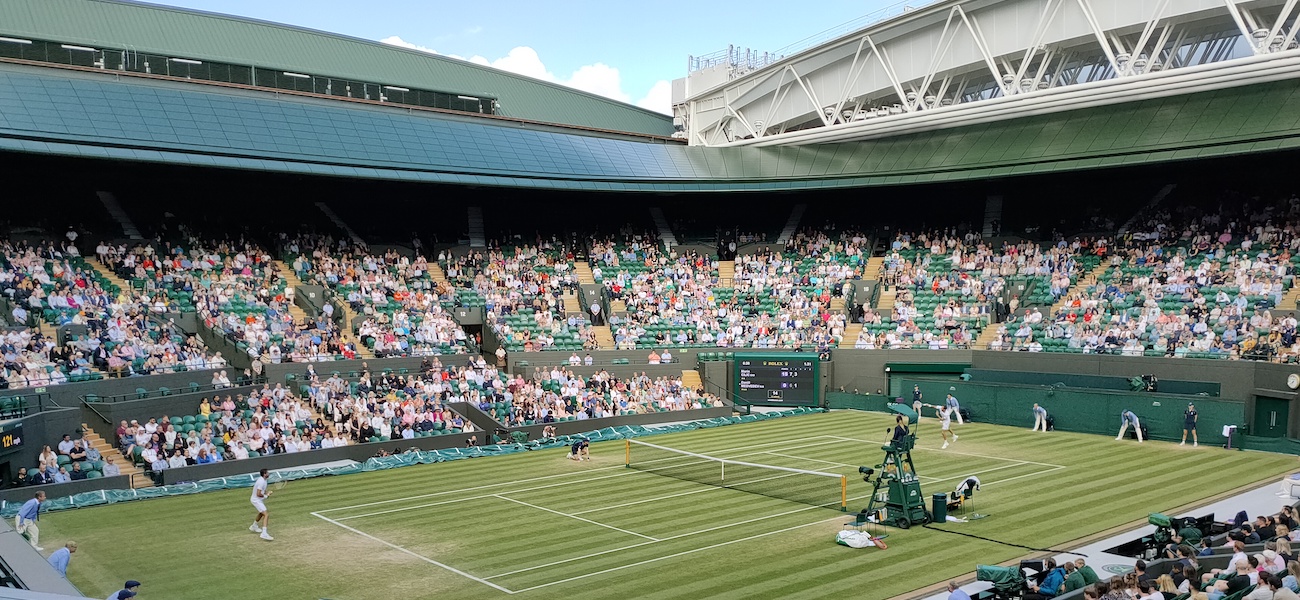The UK Government recently published its final reports from the Events Research Programme (ERP) with findings on the spread of COVID-19 at sporting and live music events that took place with restrictions in place and once they were lifted.
The report found that improvements to strategies surrounding air quality and ventilation would help to mitigate the risk of transmission. It also found that there was little evidence of increased transmission at outdoor seat and partially seated events, as well as certain seated theatre events.
The research programme was split into three phases, with the original phase running from April 17 until May 15 and consisted of nine pilot events that ran across multiple days, inside and outside. There were variations of seated, standing, structured and unstructured audiences.
Phase two and three ran between June 10 and July 25 to build on the findings from the first phases. These events tested the use of the NHS Covid Pass, vaccination status and providing a negative test in real-life situations.
Between April and July this year, a total of 31 pilot events were conducted across England, with over two million participants involved. The events included the FA Cup Final, the BRIT Awards, the British Formula 1 Grand Prix (pictured), Latitude Festival, UEFA EURO 2020, Wimbledon Tennis Championships (pictured) theatre performances and nightclub events.
Data collected focused on CO2 measurements, airflow, occupancy levels, crowd density estimates and adherence to mitigations like face coverings and crowd movements.
Across 179 spaces in 10 venues, the CO2 levels were measured as proof air quality from overcrowding or insufficient ventilation lead to a higher risk of transmission. However, the studies observed mostly good air quality in nearly all venues – though there were situations where pockets of overcrowding occasionally lowered the ventilation quality. The strategies for ventilation in these situations needed improving.
The report said: “Key measures of average and maximum CO2 levels and peak crowd densities varied significantly between different events and during them.The maximum recorded CO2 values were below 1,500ppm in 161 of the spaces monitored, and where they were higher this usually did not persist for longer than 1-2 hours. The average CO₂ levels during an entire event were below 800 ppm in 170 out of 179 monitored spaces.”
The third phase also analysed individual behaviour at events and data was obtained from ERP events where a Covid-19 test result was recorded in the NHS Test and Trace in the 16 days following their attendance.

Approximately 1.7% of attendees, from which data was readily available, tested positive for Covid-19 during the 16 study period. The results mostly showed that there was little evidence of increased transmission by attendance at these events: mainly outdoor seated, mainly outdoor partially seated, or seated theatre events – though some of these theatre events were run at 50% capacity.
Attendance at mainly outdoor unseated events like Goodwood Festival of Speed, Latitude and Tramlines festival was associated with a 1.7 fold increased risk of Covid-19 transmission. Reasons could be linked to behaviour at the event, overall event size and duration, or even the mode of travel to and from the event.
The report said: “Attendance at the mainly outdoor unseated events studied (Goodwood, Latitude and Tramlines) was associated with a 1.7 fold increased risk of Covid-19 transmission amongst attendees (95% confidence interval between 1.52 and 1.89). For context, the risk of infection in the baseline period was ~0.9% for Latitude attendees in the study; a 70% increase would take this risk to 1.53%. This confidence interval means the estimate of 70% is robust due to the large number of attendees (over 2000) at these events.”
Of those that tested positive for coronavirus following the events, where the attendee reported their vaccination status, 87% during the study period were unvaccinated.
Nigel Huddleston, Minister for Sport, Tourism, Heritage and Civil Society, said: “The Events Research Programme broke new ground on the size and scale of scientific research undertaken at live events and has undoubtedly contributed to the early reopening of our crucial business, sporting and cultural events sectors.
“The programme has provided an important template for event organisers the world over to continue to be able to plan their events safely and that’s great credit to the scientists behind this world-leading study.”
Professor Dame Theresa Marteau, chair of Events Research Programme Science Board, added: “It has been a pleasure to lead the Science Board that has overseen this large-scale science-lead programme researching the risk of transmission from attending live events to help people get back to doing the things they love.
“We have gathered large amounts of data that can be used by the scientific community worldwide, event organisers and government for the best understanding to date of the risk of transmitting coronavirus at live events and how we can best keep this risk low.”
Images: Robert Ridley and Kindful Creative on Unsplash


